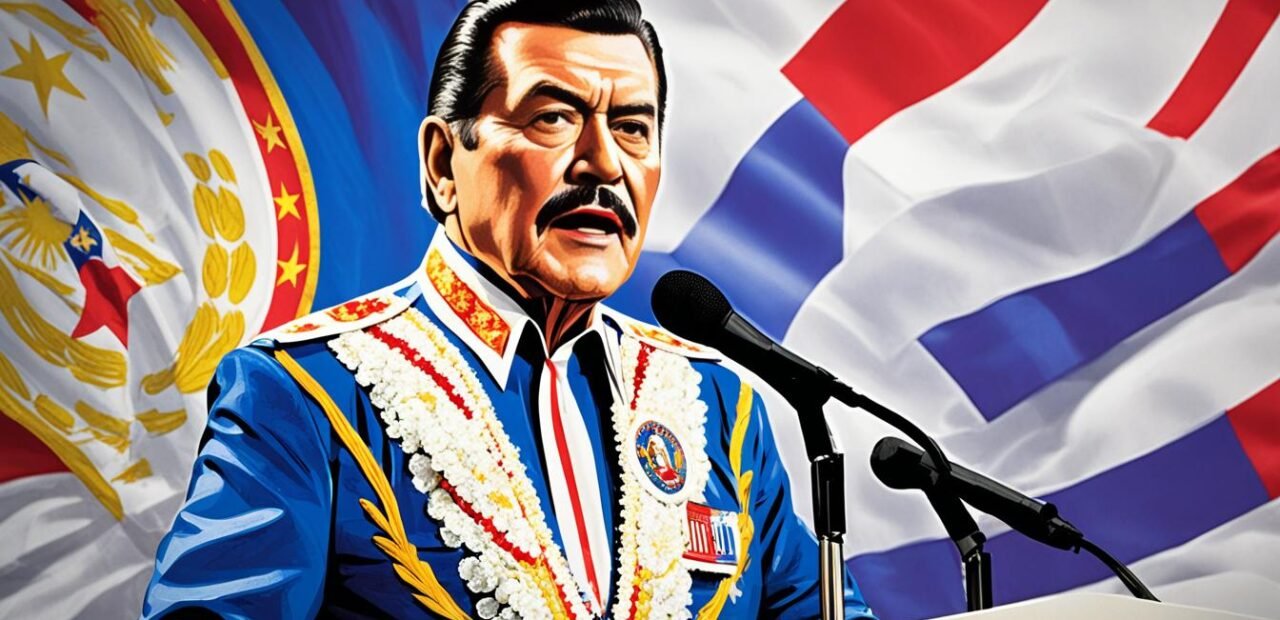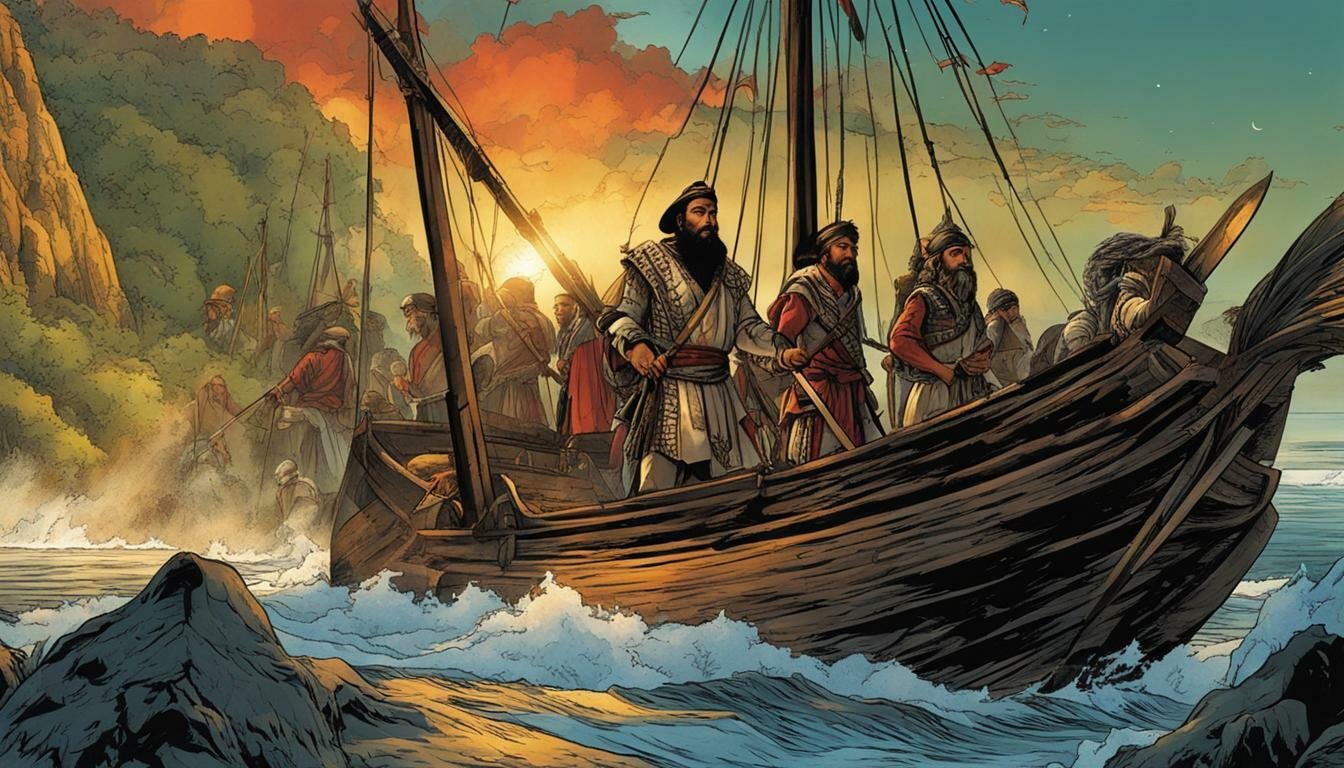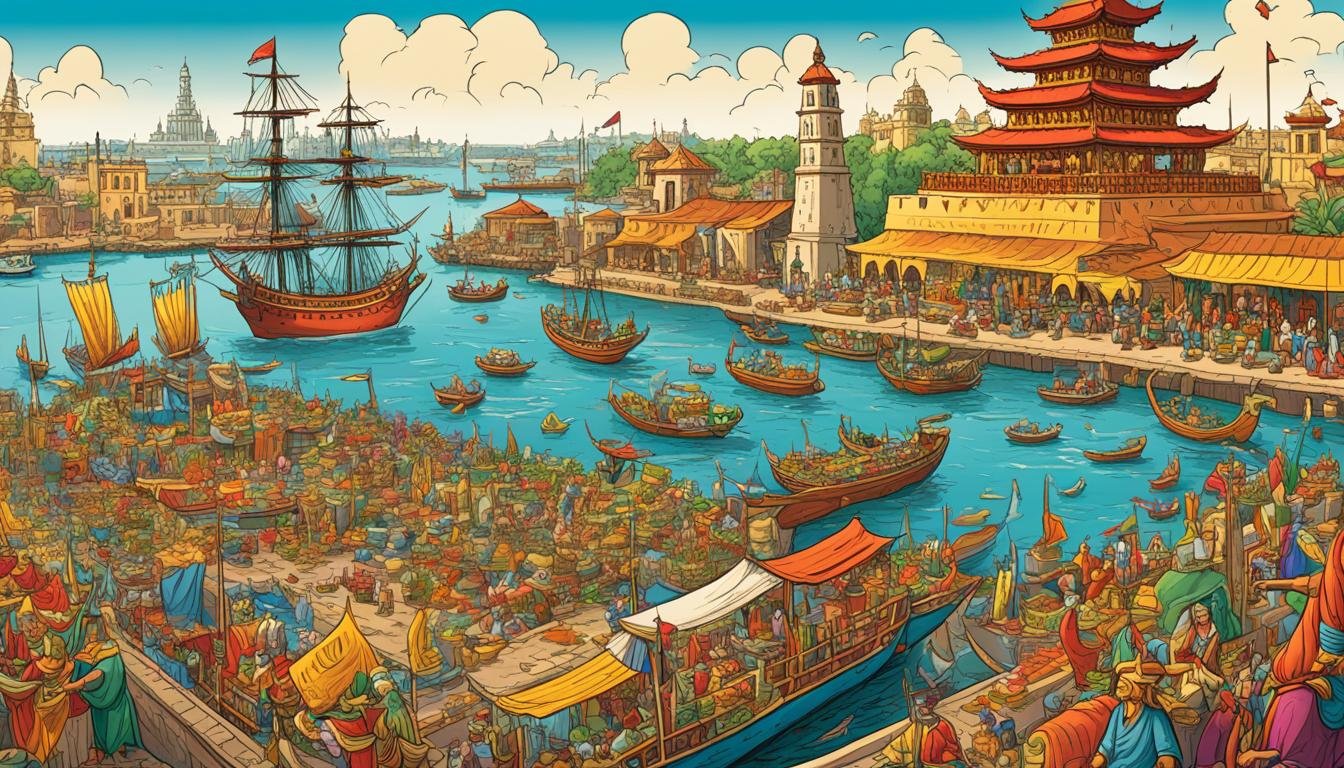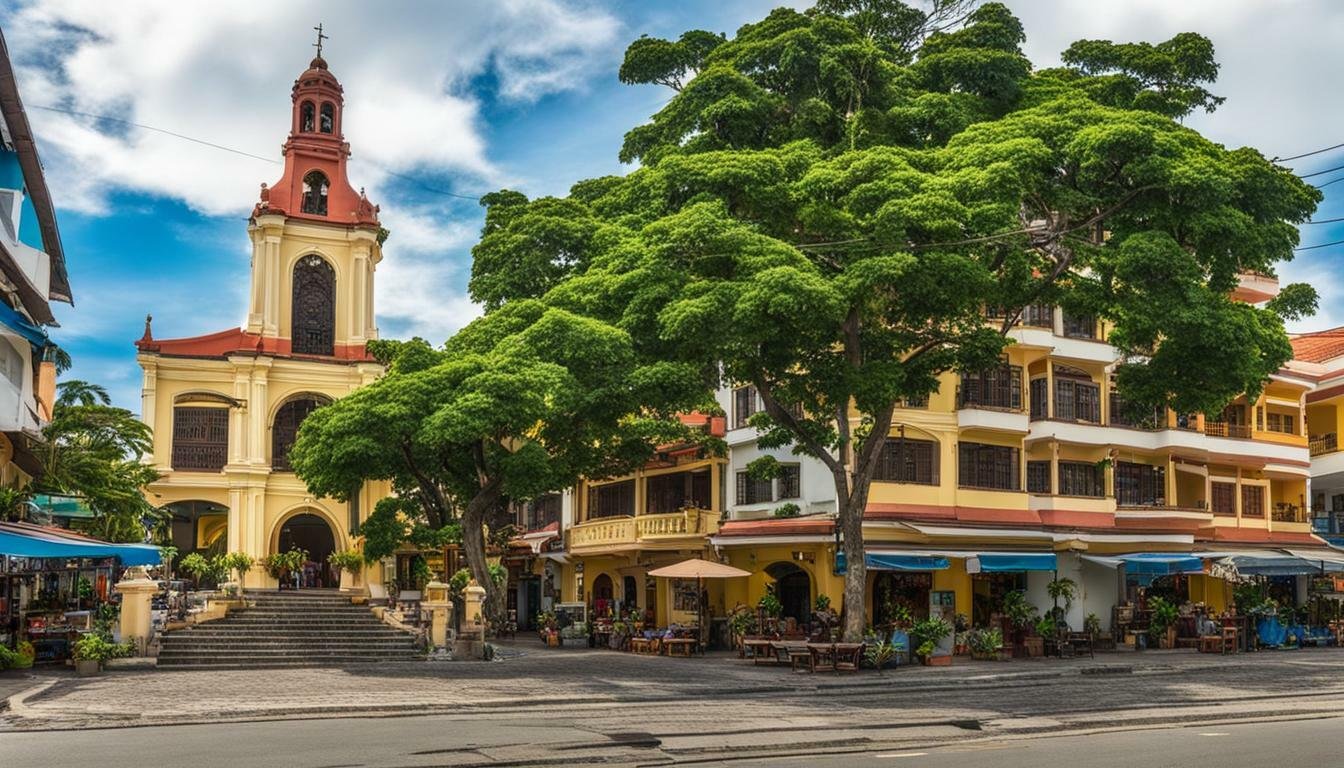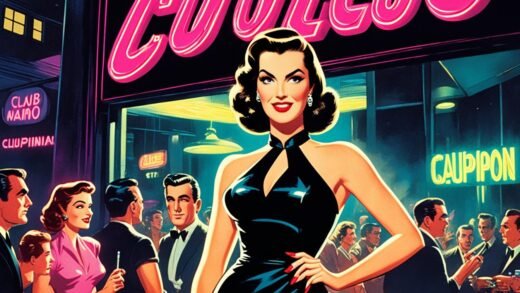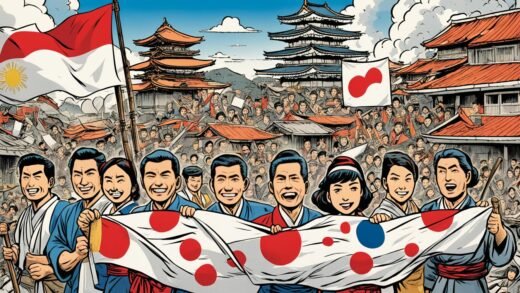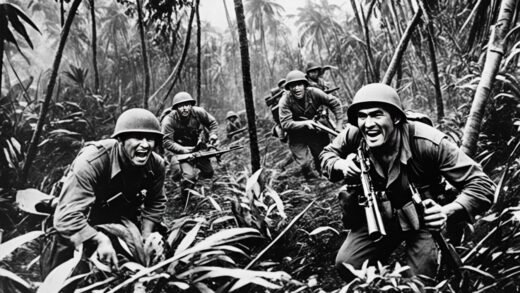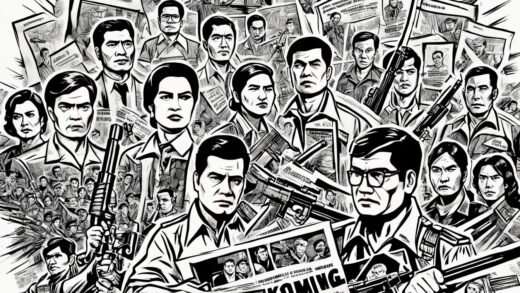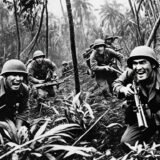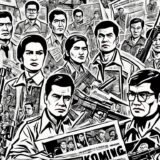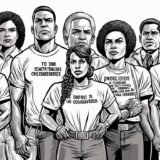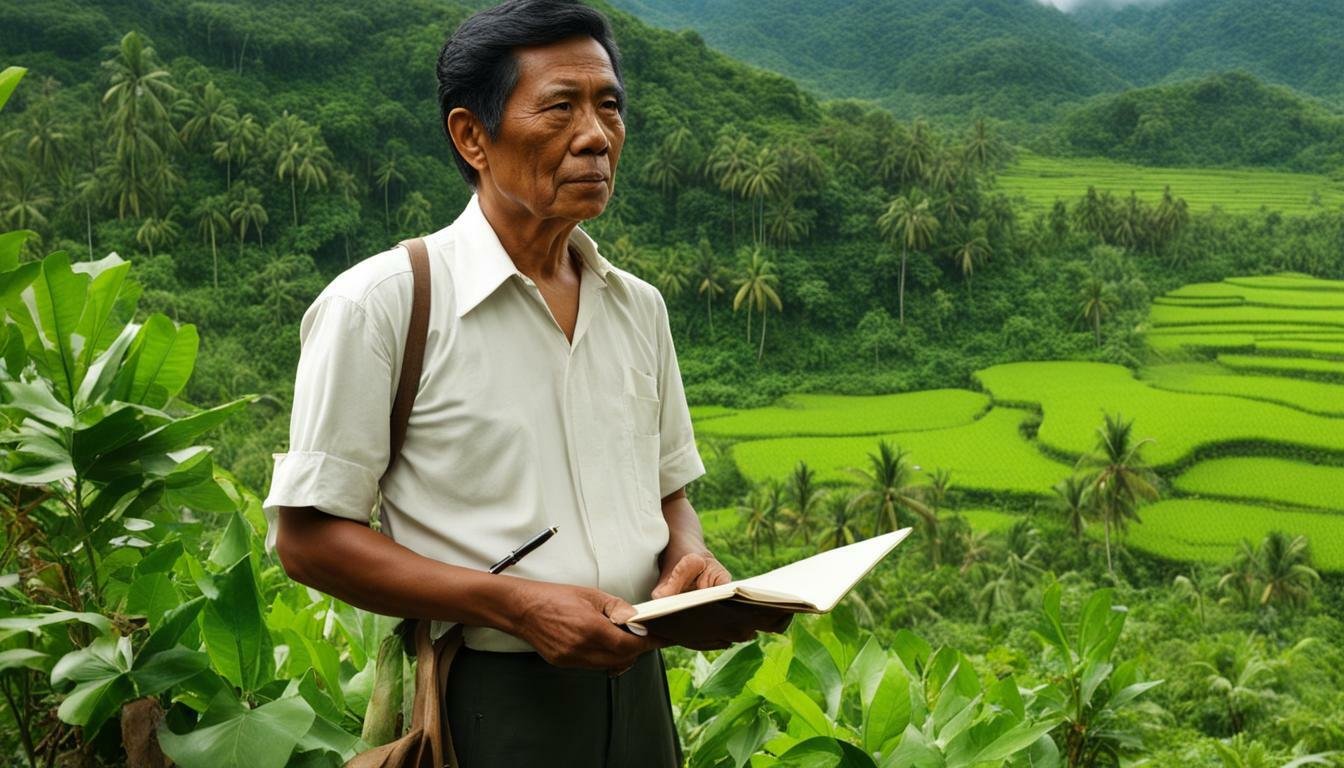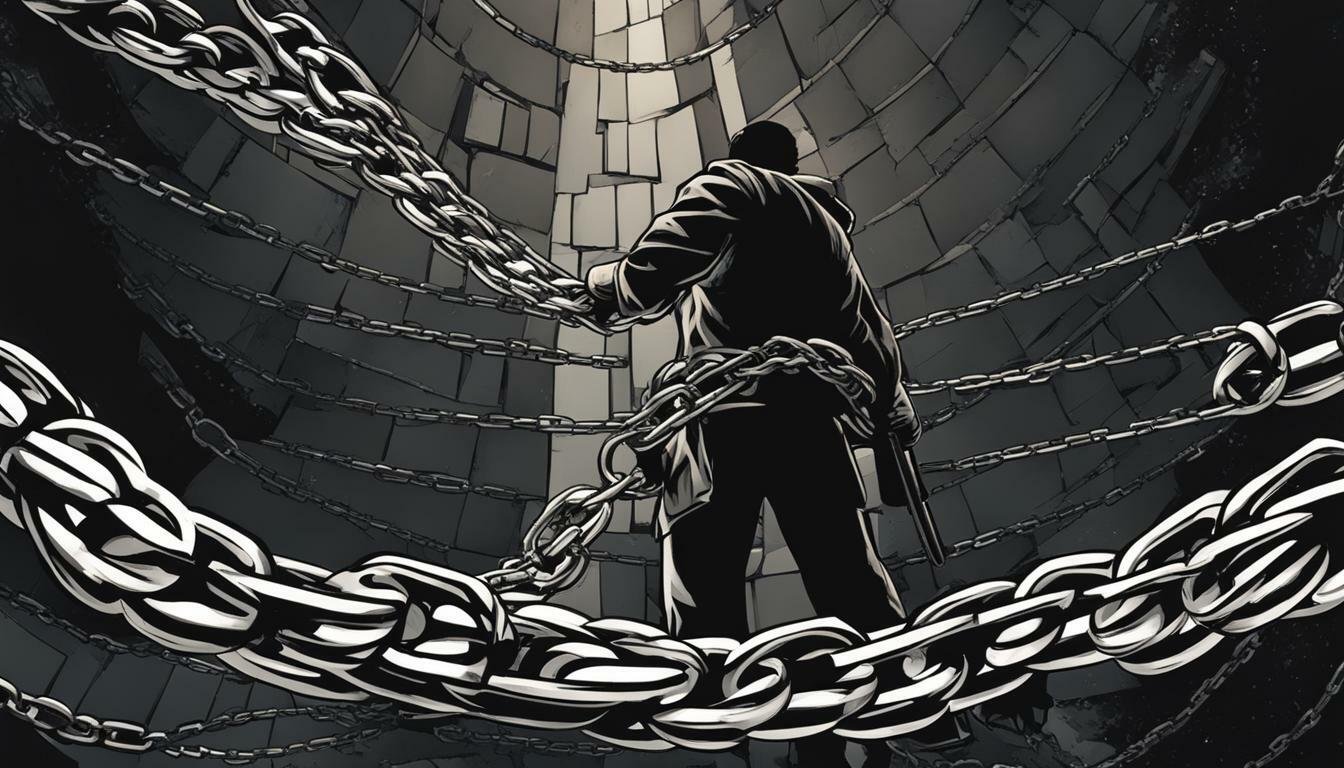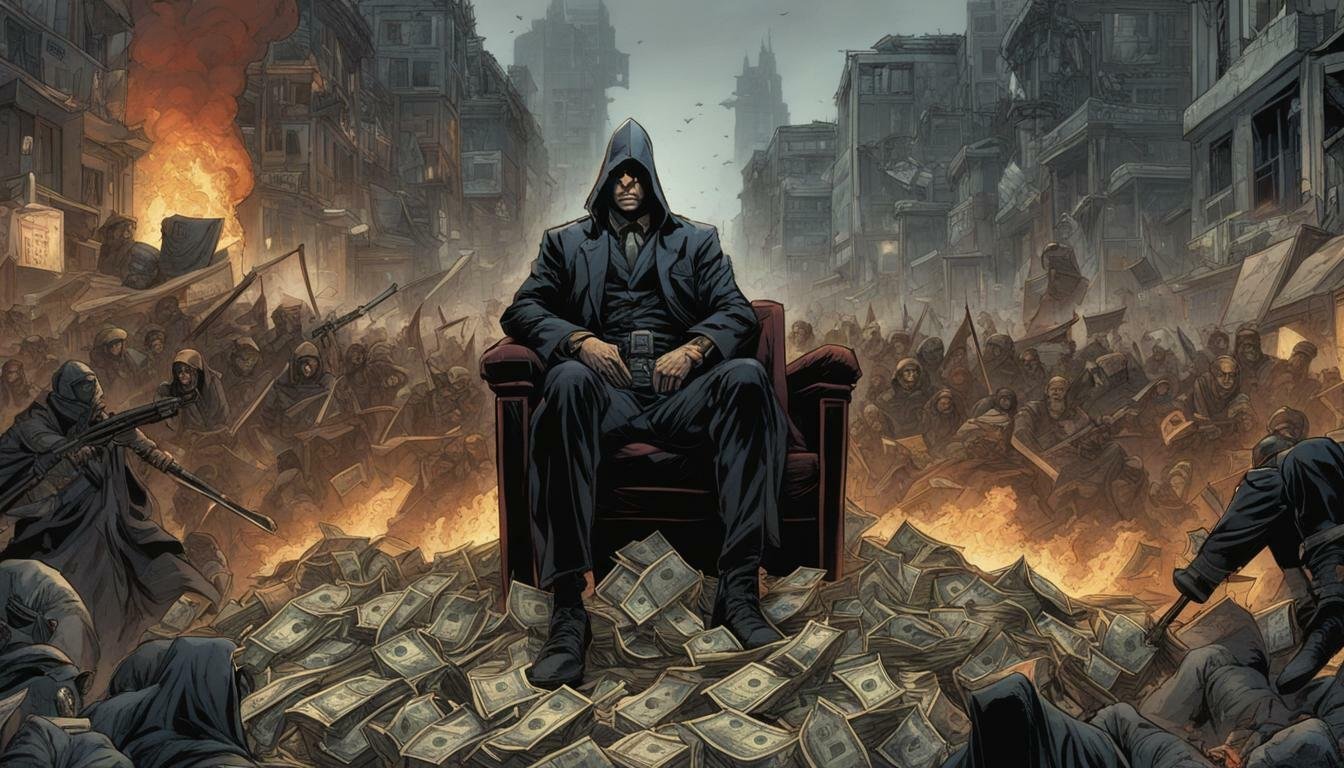Joseph Estrada: The 13th President of the Philippines
Did you know that Joseph Estrada, also known as Erap, served as the 13th President of the Philippines? With a political career spanning decades, Estrada’s journey from an actor to a state leader is a fascinating tale of ambition, controversy, and impact. Let’s explore the life and legacy of Joseph Estrada, a man who left an indelible mark on Philippine politics and society.
Key Takeaways:
- Joseph Estrada was the 13th President of the Philippines.
- He started his career as an actor and transitioned into politics.
- Estrada served as the Mayor of San Juan, a senator, and the Vice President before becoming President.
- His presidency was marked by domestic policies for the poor and economic reforms.
- Estrada faced controversies, leading to his impeachment and eventual resignation.
- After his presidency, Estrada made a political comeback as the Mayor of Manila.
- He also had a significant influence on Philippine cinema and founded Mowelfund.
From Stardom to State Leadership: The Rise of Joseph Estrada
Before entering the political arena, Joseph Estrada had a successful career in the entertainment industry. He rose to stardom as an actor, starring in over a hundred films and gaining popularity for his roles as the lead actor and protagonist. Estrada’s charisma and on-screen presence helped him gain a massive following and recognition in the Philippines.
As his acting career flourished, Estrada decided to make a transition to politics, marking the beginning of his journey towards state leadership. He ran for mayor of San Juan, leveraging his popularity and appeal to make an impactful entry into the political sphere.
This image beautifully captures the essence of Joseph Estrada’s rise to power, showcasing the intersection between his successful acting career and his eventual transition to politics. It represents his transformation from a captivating film star to a respected leader in the Philippines.
Early Years in the Spotlight
During his early years in the spotlight, Joseph Estrada captivated audiences with his exceptional acting skills and magnetic persona. His performances in various iconic films solidified his status as one of the most beloved and influential actors of his time. The recognition and fame he garnered laid the foundation for his eventual foray into politics.
Transitioning from Acting to Politics
Estrada’s decision to transition from acting to politics was influenced by his desire to effect change and serve the Filipino people on a larger scale. His success in the entertainment industry provided him with a platform and a strong public following, enabling him to embark on a political career with a solid support base.
This transition would prove to be a pivotal moment in Estrada’s life, as he entered a new realm of leadership, utilizing his charisma and public appeal to navigate the complexities of Philippine politics. His journey from stardom to state leadership demonstrates his determination to make a meaningful impact on society and contribute to the betterment of the Filipino people.
Trailblazing as the Mayor of San Juan
As the mayor of San Juan, Joseph Estrada left a significant mark on the local government. He embarked on a mission to revolutionize local infrastructure, focusing on improving roads, public facilities, and transportation systems in the municipality. Estrada introduced various infrastructural projects that transformed San Juan into a vibrant and progressive city. Additionally, he emphasized the use of technological innovations in governance, such as computerizing the assessment of real estate tax and implementing digital systems for efficient public service delivery.
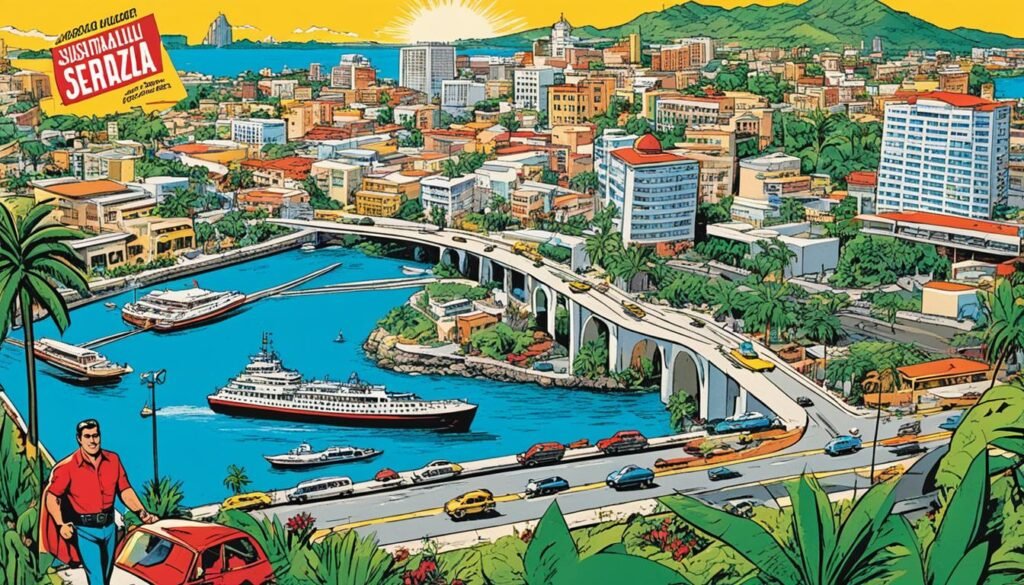
Revolutionizing Local Infrastructure
Estrada’s tenure as the mayor of San Juan was marked by a strong commitment to infrastructure development. He recognized the importance of well-maintained roads, modernized public facilities, and efficient transportation systems in enhancing the quality of life for residents. To achieve this goal, Estrada initiated various projects, including:
- Construction and renovation of roads and highways to improve connectivity within the municipality.
- Upgrading public facilities, such as schools, hospitals, and community centers, to provide better services for the people.
- Implementing urban planning initiatives to create a more organized and sustainable cityscape.
Through these efforts, Estrada brought about a transformation in the infrastructure of San Juan, making it a model city for other municipalities in the Philippines.
Installing Technological Innovations in Governance
Estrada recognized the potential of technology to streamline governance and enhance public service delivery. He introduced a range of technological innovations that improved the efficiency and effectiveness of the local government. Some notable initiatives include:
- Computerizing the assessment and collection of real estate tax, simplifying the process and minimizing errors.
- Implementing digital systems for the issuance of permits and licenses, reducing bureaucratic red tape and promoting business growth.
- Enhancing digital communication channels between the government and the public, facilitating transparency and accessibility.
By integrating technological innovations into governance, Estrada paved the way for more efficient and citizen-centric administration in San Juan.
| Projects | Impact |
|---|---|
| Construction and renovation of roads | Improved connectivity and transportation efficiency |
| Upgrading public facilities | Enhanced service delivery and quality of life for residents |
| Computerizing real estate tax assessment | Increase in tax collection efficiency and reduction in errors |
| Implementing digital systems for permits and licenses | Streamlined processes and reduced bureaucratic red tape |
| Digital communication channels | Improved transparency and accessibility of government information |
Joseph Estrada’s Legislative Impact as Senator
Before assuming the presidency, Joseph Estrada served as a senator in the Philippines. During his senatorial term, Estrada made significant contributions through his legislative efforts. He sponsored bills related to irrigation projects, the protection of carabaos (water buffaloes), and other initiatives aimed at supporting rural development and agriculture.
Estrada’s commitment to improving rural communities and the agricultural sector was evident in his efforts to promote irrigation projects. These projects aimed to enhance crop production and ensure a stable food supply for the country. By championing the protection of carabaos, he sought to safeguard the livelihoods of farmers who heavily relied on these animals for various agricultural activities.
Estrada’s tenure as a senator demonstrated his dedication to addressing the needs of rural areas and uplifting the agricultural sector. His initiatives were aimed at boosting rural development, improving farming practices, and supporting local economies.
Ascending to the Vice Presidency under Ramos
After his term as a senator, Joseph Estrada became the Vice President of the Philippines under President Fidel V. Ramos. As the Vice President, Estrada was appointed as the Chairman of the Presidential Anti-Crime Commission (PACC). He played a vital role in combating crime and ensuring public safety. Additionally, Estrada made significant contributions to national defense and security, particularly during his active involvement in addressing the issues related to the Moro Islamic Liberation Front.
Chairing the Presidential Anti-Crime Commission
As the Chairman of the Presidential Anti-Crime Commission (PACC), Joseph Estrada spearheaded efforts to tackle crime and maintain law and order in the Philippines. His leadership and commitment to combating criminal activities helped in creating safer communities and reducing crime rates. Estrada’s tenure as the head of the PACC marked a significant step towards establishing a more secure and peaceful society.
Contributions to National Defense and Security
Joseph Estrada’s dedication to national defense and security was evident during his time as the Vice President. He actively participated in addressing the challenges posed by the Moro Islamic Liberation Front, a separatist group in the Philippines. Estrada’s involvement in negotiations and strategic initiatives played a crucial role in fostering peace and stability in the affected regions. His commitment to safeguarding the nation’s interests and ensuring the security of its citizens remains noteworthy.
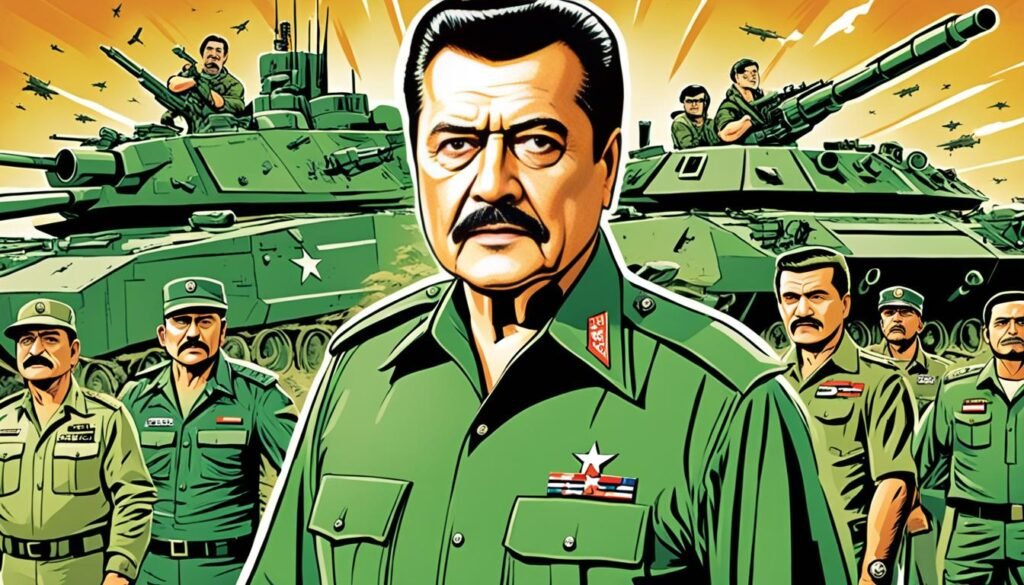
The Pinnacle: Joseph Estrada’s Presidency
Joseph Estrada’s presidency marked a significant period in Philippine history. As the 13th President, Estrada introduced various domestic policies aimed at uplifting the lives of the poor and boosting the economy. He implemented social welfare programs, poverty alleviation initiatives, and economic reforms to address the needs of the marginalized sectors of society.
Estrada’s domestic policies prioritized poverty reduction and improving the standard of living for the most vulnerable communities. His administration focused on providing healthcare, education, and housing opportunities to those in need. By investing in social infrastructure and community development projects, Estrada aimed to uplift the quality of life and promote inclusive growth.
Furthermore, Estrada’s economic policies aimed to stimulate the economy and attract foreign investment. His administration pursued market-oriented reforms and implemented measures to enhance trade and industry, foster entrepreneurship, and create employment opportunities. By encouraging economic growth, Estrada aimed to improve the overall well-being of the Filipino people.
In addition to domestic policies, Joseph Estrada faced numerous foreign policy challenges and milestones during his presidency. He sought to strengthen diplomatic ties with other countries, promote regional cooperation, and secure foreign investments.
Estrada’s foreign policy agenda included active engagement in regional and international organizations, such as the Association of Southeast Asian Nations (ASEAN) and the United Nations. He aimed to foster closer relations with neighboring countries and promote peace and stability in the region.
However, Joseph Estrada’s presidency was not without its hurdles. His administration faced challenges such as the Asian financial crisis and geopolitical tensions. The handling of these issues required strategic diplomacy and decision-making.
In conclusion, Joseph Estrada’s presidency was characterized by a commitment to improving the lives of the poor and boosting the economy. His domestic policies focused on poverty reduction and social welfare, while his foreign policy endeavors aimed to secure the Philippines’ place in the international arena. Despite the challenges, Estrada’s presidency left a lasting impact on Philippine politics and society.
Controversies and Impeachment: The Fall of Estrada
Joseph Estrada’s presidency was marred by controversies that ultimately led to his downfall. The emergence of allegations, including corruption charges and allegations of misuse of public funds, sparked public outrage and eroded public trust in Estrada’s leadership. The disgruntled masses took to the streets in what became known as the infamous People Power 2 movement, demanding Estrada’s resignation.
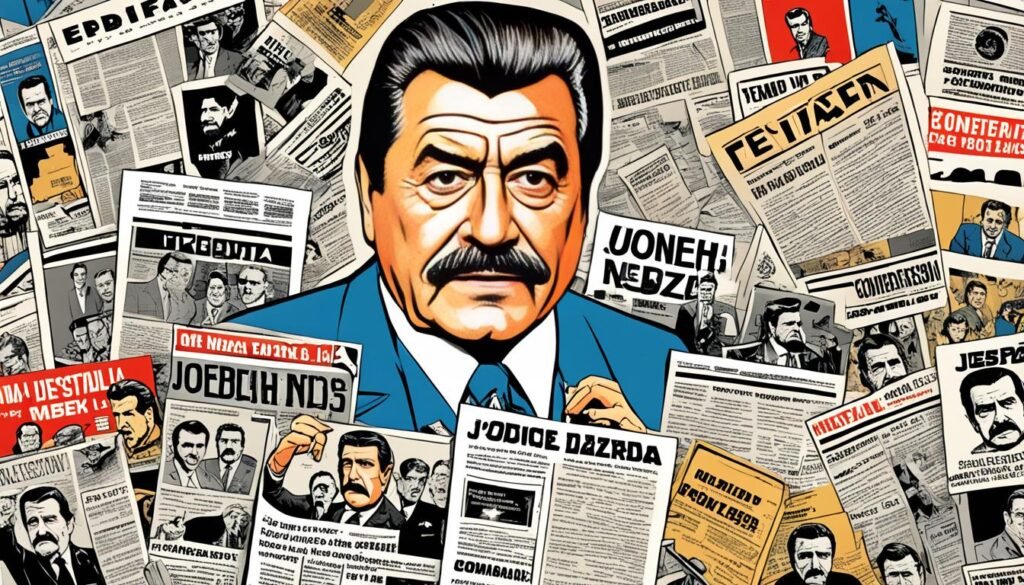
Facing impeachment and the escalating threat of public unrest, Estrada found himself in a precarious position. To avoid further destabilization, he made the difficult decision to resign from the presidency.
The controversies surrounding Estrada’s presidency left a lasting impact on Philippine politics. They highlighted the need for transparency, accountability, and good governance in the country’s leadership. The events of this tumultuous period served as a catalyst for change and prompted renewed efforts to uphold integrity and uphold the interests of the Filipino people.
Life after Presidency: Legal Battles and Pardon
Following his resignation from the presidency, Joseph Estrada encountered numerous legal battles and challenges as he maneuvered through the aftermath of his controversial tenure. He faced prosecution and conviction for plunder, a high-profile case that led to his arrest and imprisonment.
However, despite the legal hurdles, Estrada’s fortunes took a turn when he received a presidential pardon from his successor, Gloria Macapagal Arroyo. This pardon granted Estrada the opportunity to re-enter the political arena and continue his career in public service.
The legal battles and subsequent pardon had a significant impact on Estrada’s life after the presidency. They shaped his experiences, tested his resilience, and brought about both challenges and opportunities.
Joseph Estrada Returns: The Comeback as Mayor of Manila
Despite his impeachment and conviction, Joseph Estrada made a political comeback and was elected as the mayor of Manila.
Infrastructure and Social Welfare Initiatives
Estrada’s second stint as mayor was marked by his dedication to improving the city’s infrastructure and enhancing social welfare programs. Recognizing the importance of robust infrastructure, he launched various initiatives aimed at modernizing Manila’s transportation systems, improving road networks, and upgrading public facilities. These infrastructure investments not only provided a more efficient and convenient urban environment but also bolstered economic growth and opportunities.
In addition to infrastructure, Estrada focused on social welfare initiatives to address the needs of Manila’s residents. He implemented programs to support education, healthcare, and livelihood opportunities for marginalized sectors of society. By prioritizing social welfare, he aimed to uplift the lives of the city’s underprivileged populations and create a more inclusive and equitable capital.
Through his commitment to infrastructure and social welfare, Estrada sought to transform Manila into a vibrant and livable city, ensuring that its residents had access to essential services and a better quality of life.
Leaving a Legacy in the Capital City
Joseph Estrada’s tenure as the mayor of Manila left a lasting legacy in the city. His infrastructure initiatives rejuvenated the urban landscape, providing improved transportation options, revitalized public spaces, and upgraded facilities. These enhancements not only enhanced the daily lives of Manileños but also stimulated economic development and drove investments in the city.
Furthermore, Estrada’s social welfare programs had a profound impact on the lives of the city’s residents. By prioritizing education and healthcare, he aimed to empower individuals and improve their overall well-being. His initiatives helped uplift the marginalized sectors of society, providing them with access to essential services and opportunities for social and economic advancement.
Overall, Joseph Estrada’s legacy as the mayor of Manila is defined by his commitment to infrastructure development, social welfare, and improving the overall livability of the capital city. His vision and initiatives continue to shape Manila’s present and future, creating a lasting impact on the city and its residents.
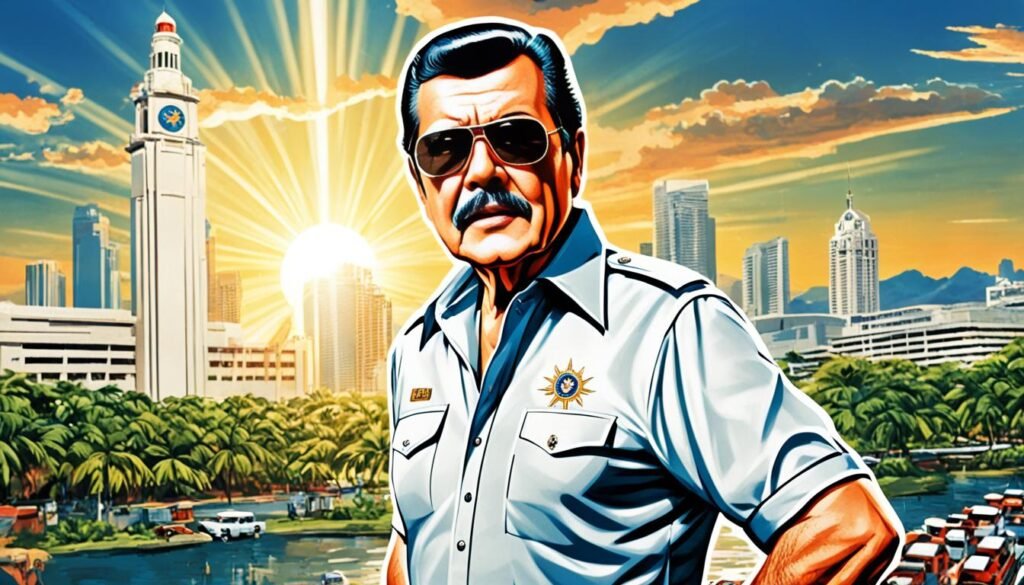
Estrada’s Influence on Philippine Cinema and Culture
Joseph Estrada’s impact extends beyond the political arena. As a renowned actor and film personality, he had a significant influence on Philippine cinema and culture.
Founding Mowelfund and the Metro Manila Film Festival
Estrada played a pivotal role in founding Mowelfund, an organization that supports filmmakers in the Philippines. Mowelfund provides training, resources, and financial aid to aspiring filmmakers, contributing to the growth and development of the local film industry. Through Mowelfund, Estrada has helped countless filmmakers hone their craft and bring their stories to the screen.
Estrada was also instrumental in establishing the Metro Manila Film Festival (MMFF), an annual event that showcases Filipino films. The MMFF has become a platform for local filmmakers to exhibit their work and celebrate the richness of Philippine cinema.
Intersections of Film and Politics
Estrada’s journey from the silver screen to the political stage highlights the interconnectedness of film and politics in his career. His status as a film star played a significant role in shaping his political persona, as his popularity and charm appealed to the masses. Likewise, his venture into politics influenced the public’s perception of him as an actor, with his film roles often reflecting his political image.
The influence of film and politics on Estrada’s life and career is a testament to the power of storytelling and visual media in capturing the hearts and minds of the Filipino people.
Electoral Saga: From Presidential Victories to Defeats
This section provides an overview of Joseph Estrada’s electoral journey, tracing his path through various presidential elections. Estrada experienced both victories and defeats throughout his political career, with each campaign influenced by the prevailing political landscape and other factors.
Estrada’s electoral history played a significant role in shaping his political career and the overall dynamics of Philippine politics. His campaigns showcased his ability to connect with voters and his popularity among certain segments of the population. At the same time, his defeats highlighted the challenges and obstacles he faced in achieving his political aspirations.
During his presidential victories, Estrada successfully garnered support from a wide range of voters, capitalizing on his established name recognition and his ability to connect with the masses. These victories propelled him into the highest office in the Philippines, giving him the opportunity to implement his policies and shape the nation’s future.
However, Estrada also experienced defeats in his presidential bids. These defeats were influenced by various factors, including political rivalries, public sentiment, and the issues and controversies surrounding his candidacy. Despite these setbacks, Estrada’s determination and resilience allowed him to remain a prominent figure in Philippine politics.
Throughout his political career, Joseph Estrada’s electoral journey showcased the ups and downs of his quest for power. His victories and defeats reveal the complexities of Philippine politics and the ever-changing dynamics of electoral landscapes.
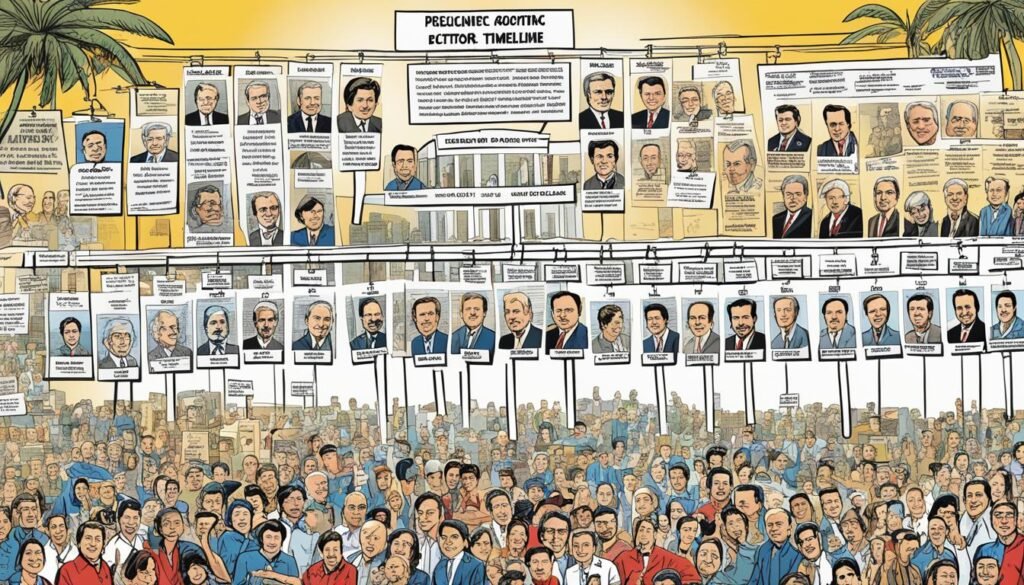
Joseph Estrada
The Popular Mandate: Estrada’s Election as President
Joseph Estrada’s election as the President of the Philippines was a result of his popular mandate and the support he garnered from the Filipino people. His victory in the presidential election was influenced by several factors, including his charisma, experience in politics, and his connection with the masses. Estrada’s background as a successful actor and his track record as the Mayor of San Juan and a Senator also played a significant role in his electoral success.
During his tenure as the President, Estrada implemented key policies and legislation that shaped his governance style and priorities. He focused on addressing the needs of the poor and implemented various social welfare programs and poverty alleviation initiatives. Additionally, Estrada enacted economic reforms to boost the country’s economy and attract foreign investments.
One of the key policies implemented during Estrada’s presidency was the Juvenile Justice and Welfare Act, which aimed to protect the rights and welfare of children in conflict with the law. This legislation introduced a comprehensive approach to juvenile justice, focusing on rehabilitation and reintegration of juvenile offenders into society.
“The Filipino people have spoken, and I humbly accept their mandate. It is my duty and responsibility to serve the nation and uplift the lives of our fellow Filipinos.” – Joseph Estrada
Estrada’s presidency was marked by his commitment to improving the lives of the marginalized sectors of society and his dedication to economic development. His popular mandate and the key policies implemented during his tenure cemented his place in Philippine history and shaped the trajectory of the country.
International Diplomacy and Agreements
As the President of the Philippines, Joseph Estrada played a significant role in international diplomacy and establishing relations with other countries. His efforts were aimed at securing foreign investments and nurturing foreign relations, which contributed to the growth and development of the nation. One of the key agreements Estrada was involved in negotiating and implementing was the RP-US Visiting Forces Agreement, which had a profound impact on the Philippines’ defense and security.
The RP-US Visiting Forces Agreement
The RP-US Visiting Forces Agreement, also known as VFA, was a bilateral agreement between the Republic of the Philippines and the United States. It provided a legal framework for the temporary presence of US military forces in the Philippines for various activities, including joint training exercises, humanitarian assistance, and disaster response. The agreement was signed on February 10, 1998, during Estrada’s presidency and aimed at strengthening military cooperation and enhancing the defense capabilities of both countries.
Securing Foreign Investments and Relations
Joseph Estrada recognized the importance of foreign investments in promoting economic growth and stability. During his presidency, he actively pursued initiatives to attract foreign investors and enhance trade relations with other countries. By creating a conducive business environment and implementing favorable economic policies, Estrada encouraged foreign direct investments, which contributed to the expansion of industries and the creation of job opportunities in the Philippines. His focus on nurturing foreign relations also helped strengthen diplomatic ties and fostered international cooperation in various areas, such as trade, education, and cultural exchanges.
Philanthropy: Humanitarian Efforts and Advocacy
Joseph Estrada has consistently demonstrated his commitment to serving the Filipino people beyond politics through his active involvement in philanthropic endeavors, humanitarian efforts, and advocacy. Throughout his career, Estrada has dedicated himself to social welfare and the betterment of society, making a positive impact on the lives of the less fortunate.
One notable aspect of Estrada’s philanthropy is his support for various charitable works. He has contributed to numerous organizations and initiatives aimed at addressing societal issues and uplifting marginalized communities. Through his financial contributions and personal involvement, Estrada has made a tangible difference in the lives of many.
Estrada’s advocacy efforts have focused on important causes such as education, healthcare, and other social welfare issues. He has been vocal in raising awareness and garnering support for these critical issues, leveraging his influence and platform to make positive changes in Philippine society.
Conclusion
Joseph Estrada, the 13th President of the Philippines, had a remarkable journey in politics and entertainment. From his humble beginnings as an actor, he rose to become a prominent political figure, serving as the Mayor of San Juan, a Senator, the Vice President, and eventually the President of the country. Throughout his career, Estrada initiated numerous impactful policies and projects, leaving a lasting legacy in Philippine politics and society.
Estrada’s dedication to improving local infrastructure and introducing technological innovations as the Mayor of San Juan transformed the municipality into a thriving city. As a senator, he championed legislation benefiting agriculture and rural development. As the Vice President, Estrada spearheaded efforts to combat crime and played a crucial role in national defense and security.
During his presidency, Estrada introduced domestic policies aimed at uplifting the lives of the poor and boosting the economy. He faced both milestones and challenges in foreign affairs, leaving a mark on the international stage. However, controversies surrounding corruption allegations led to his impeachment and eventual resignation. Despite these setbacks, Estrada’s comeback as the Mayor of Manila showcased his resilience and determination to serve the Filipino people. His initiatives in infrastructure and social welfare significantly contributed to the development of the capital city.
Joseph Estrada’s influence extended beyond politics, as he played a pivotal role in Philippine cinema and culture. His contributions to the film industry through the founding of Mowelfund and the Metro Manila Film Festival left an indelible mark on Philippine cinema. The intersections between his film career and politics further shaped his persona and political journey.
The life of Joseph Estrada is a testament to the complexities and challenges of leadership. Despite facing controversies and personal struggles, he left a lasting impact on Philippine society. His story serves as a reminder that true leadership is not defined solely by victories and accomplishments but also by the ability to overcome adversity and contribute to the welfare of the people.

